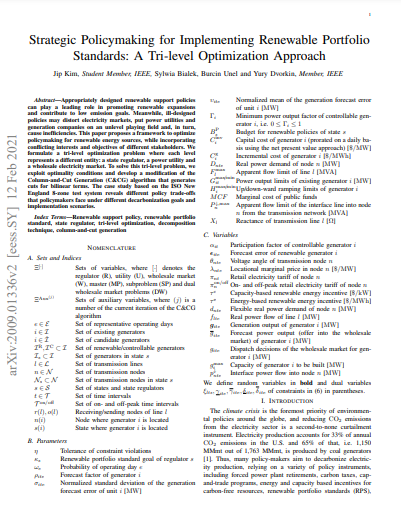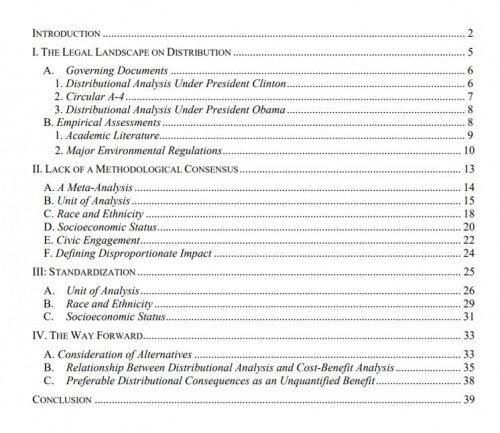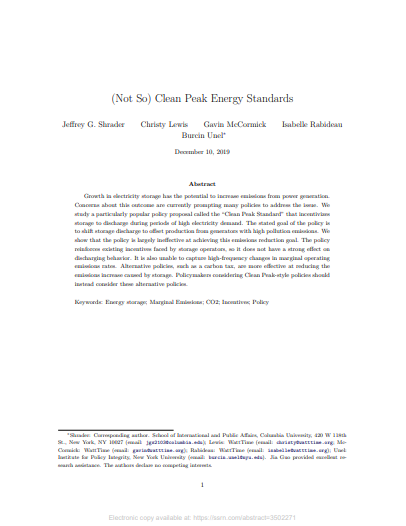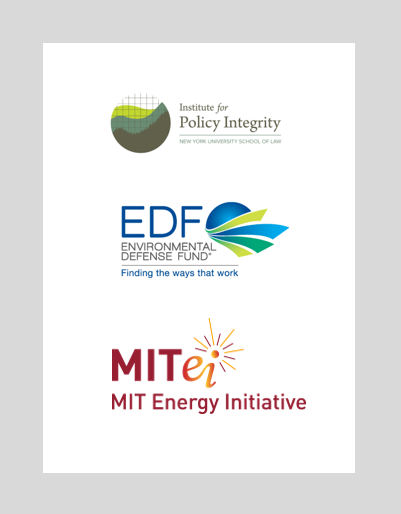-
Strategic Policymaking for Implementing Renewable Portfolio Standards: A Tri-level Optimization Approach
Forthcoming
Appropriately designed renewable support policies can play a leading role in promoting renewable expansions and contribute to low emission goals. Meanwhile, ill-designed policies may distort electricity markets, put power utilities and generation companies on an unlevel playing field and, in turn, cause inefficiencies. This paper, forthcoming in IEEE Transactions on Power Systems, proposes a framework to optimize policymaking for renewable energy sources, while incorporating conflicting interests and objectives of different stakeholders.
-
Distributional Consequences and Regulatory Analysis
Published in Environmental Law
This article examines what it would take for the Biden effort at incorporating environmental justice into regulatory decisionmaking to succeed where the Clinton and Obama efforts failed. It argues that agencies will need to be provided with clear guidance on the methodologies used to conduct distributional analysis, and that the lack of a standardized approach is part of the reason prior efforts failed. It further argues that agencies will need to take seriously the already existing requirement of analyzing the distributional consequences of different regulatory alternatives. Otherwise, they will never be in a position to answer the key question in this area: when are the better distributional consequences of one alternative sufficient to overcome another alternative’s higher net benefits?
-
(Not So) Clean Peak Energy Standards
Growth in electricity storage has the potential to increase emissions from power generation. Concerns about this outcome are currently prompting many policies to address the issue. We study a particularly popular policy proposal called the “Clean Peak Standard” that incentivizes storage to discharge during periods of high electricity demand. The stated goal of the policy is to shift storage discharge to offset production from generators with high pollution emissions. We show that the policy is largely ineffective at achieving this emissions reduction goal. The policy reinforces existing incentives faced by storage operators, so it does not have a strong effect on discharging behavior. It is also unable to capture high-frequency changes in marginal operating emissions rates. Alternative policies, such as a carbon tax, are more effective at reducing the emissions increase caused by storage. Policymakers considering Clean Peak-style policies should instead consider these alternative policies.
-
Retail Electricity Tariff Design, Distributed Energy Resources, and Emissions
In this paper, we use an economics-engineering simulation model to analyze how different types of residential retail tariff designs such as time-of-use, critical-peak pricing, and fully cost-reflective tariffs affect DER deployment and use, and, hence, the resulting emissions of CO2, SO2, and NOx in the Commonwealth Edison service territory in Chicago. Our results show that in the short term retail tariffs can help or hinder environmental goals through their effect on DER deployment and consumption behavior, emphasizing the importance of pairing DER policy initiatives with decarbonization efforts at the wholesale electricity level.
-
The Role of Electricity Tariff Design in Distributed Energy Resource Deployment
This paper simulates the effect of more advanced residential electricity tariffs on household adoption of distributed energy resources (DERs). We find that tariffs that are more time variant lead to greater reductions in coincident peak demands than flat volumetric tariffs, both from load shifting as well as from adoption of DERs. Regarding the effect of electricity tariff design on DER investments, we find that at current DER purchase costs investments in rooftop photovoltaic (PV), batteries and natural gas distributed generators are not privately optimal under any of our tariff design scenarios based on current cost levels for electricity and gas in the Chicago study area.
Viewing all publications in Academic Articles/Working Papers




